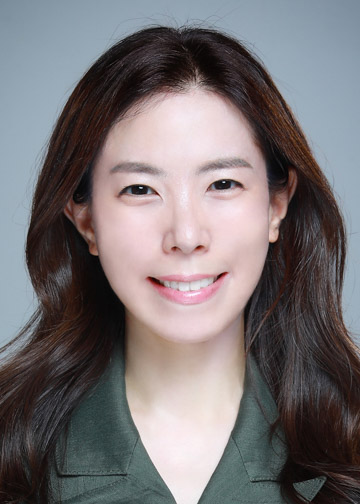Dr. Hyun Jung Kang
Assistant ProfessorMusic Therapy
Mason Hall
(716) 673-3151
View email
Accepted Students ONLY!
Join us Saturday, March 28 (10 AM–2 PM) for Go Big BLUE DAY — sessions, tours, and giveaways.
Sign Up Today!
Dr. Hyun-Jung Kang is an assistant professor of music therapy at the State University of New York at Fredonia. Prior to joining Fredonia’s faculty, she had been teaching courses related to music therapy, music, and psychotherapy at several universities in the Republic of Korea since 2007. She holds two doctoral degrees; she completed her first doctoral course in expressive therapies at Lesley University and received her second doctoral degree in music therapy at Ewha Womans University. She has also finished all but her dissertation in a doctoral program in child psychology at Jeju National University. She completed a master’s degree in music therapy education (M.Ed.) and a dual degree in orchestral instruments (B.M.) and in psychology (B.A.) at Ewha Womans University. She also graduated as a violin major in music at Seoul Arts High School.
As a music-centered expressive arts therapist (health-musician), she has provided music therapy sessions since 2006 for various populations and has received psychotherapy training in myriad programs including Guided Imagery and Music (Level II completion), Child-Centered Play Therapy, Jungian Sandplay, and neuroscience-informed psychotherapies. During the first 4 years of her career, she provided music therapy sessions to children with developmental disabilities by collaborating with other professionals. She also taught one-year Kindermusik classes, an early childhood education music and movement program, for infants to 7-year-old children. Since 2010, she has focused on psychotherapies for not only traumatized individuals but also for the general population at the individual and community levels. As a director of CoMuHeal, she has experience running projects including participatory music therapy concerts for firefighters healing from trauma (funded by Gyeonggi-do government, Korea) and for people facing COVID-related mental health challenges (funded by Kyobo Life Insurance, Korea).
Dr. Kang’s current research interests include (a) community music therapy: with specific emphasis on uses of music for well-being in everyday life, music therapy in educational contexts, music therapy for musicians, collaborative and interdisciplinary practice, and uses of contemporary philosophy (ecological perspective, postmodernism, and posthumanism) to inform community music therapy paradigm and practice, (b) neuroscience-informed trauma care with music and arts: with specific emphasis on applying neuroscience-informed psychotherapy methods to music therapy practice and music therapy for somatic symptoms, and (c) spirituality and mindfulness.
PUBLICATIONS
Kim, S., Kim, S., Kim, K., & Kang, H-J. (2022). Qualitative research on student motivation for entering and continuing in a doctoral degree program in music therapy. Journal of Humanities and Social Sciences 21, 13(6), 3073-3088. https://doi.org/10.22143/HSS21.13.6
Chong, H., Yun, J., Kang, H-J, & Won, H. (2020). Satisfaction study of the music therapy program for adolescents at-risk: Adolescents in suspension and probation under the condition of consultation. Korean Journal of Correctional Discourse, 14(1), 183-207.
Kang, H-J. (2019). Participation in amateur orchestra and subjective well-being in Korea. The Arts in Psychotherapy 65. https://doi.org/10.1016/j.aip.2019.101579
Chong, H., Won, H., & Kang, H-J. (2019). Tri-partite networking model of arts-based therapy for adolescents in probation, Korean Journal of Correctional Discourse, 13(3), 117-136.
Kang, H-J. (2017). Review of the theoretical components of community music therapy, Journal of Music and Human Behavior, 14(2), 91-105.
Kang, H-J. (2017). Supportive music and imagery with sandplay for child witnesses of domestic violence: A pilot study report. The Arts in Psychotherapy 53(9), 72-79. http://dx.doi.org/10.1016/j.aip.2017.01.009
Kang, H-J. (2006). Improvement of attention span and impulsivity of children with attention deficit hyperactivity disorder through structured violin learning, Journal of Music and Human Behavior, 3(2), 1-14.
PRESENTATIONS
Kang, H-J. (2024). Understanding neuroscience-informed approaches to trauma care and resourcing by integrating two expressive arts modalities. Oral presentation at the second Fredonia Mini-Conference Conference. March 2, Fredonia, NY, US.
Kang, H-J. (2022). Review of recent community music therapy research. Oral presentation at the 43th symposium of Korean Music Therapy Education Association – 11th conference of Kosin Music Therapy Association. May 28. Busan, Korea.
Kang, H-J. (2021). Participation in amateur orchestra and subjective well-being in Korea. Oral presentation at the online conference of the 16th International Conference on Music Perception and Cognition (ICMPC) – 11th triennial conference of European Society for the Cognitive sciences Of Music (ESCOM). July 29-30. (from London, U.K. to Online due to COVID-19).
Kang, H-J, & Han, J. (2020). Differences in the benefits of music listening between South Korean teenagers studying in Korea and the United States: A pilot study report. Poster session at the 6th conference of the International Association for Music and Medicine. May 30-31. (from Boston, U.S. to Online due to COVID-19).
Kang, H-J. (2018). Theoretical components of community music therapy practice. Poster presentation at 2018 Research Festival of Korean Music Therapy Education Association. September 8. Seoul, Korea.

Dr. Hyun Jung Kang
Assistant Professor